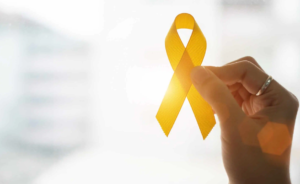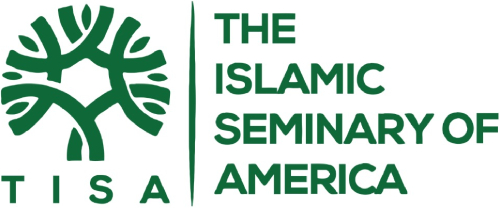
This article is reshared from the September 10, 2021 muslimmatters.org article By Rania Awaad, MD, Taimur Kouser, BA, Osama El-Gabalawy, MD, & Belal Zia, MA
Suicide is clearly forbidden in Islam, but that does not mean that Muslims do not have suicidal thoughts or do not die by suicide. Suicide is a complex phenomenon. Several factors relate to a person’s risk for suicide, including biological factors like genetic traits that increase a person’s susceptibility to mental health problems, psychological factors like feelings of worthlessness and hopelessness, social factors like the type and quality of relationships that a person has with others, and spiritual factors like a person’s ethical or moral beliefs. Muslims, just like all other people, are influenced by these various biological, psychological, social, and spiritual factors. For Muslims living in some Western countries, there may be additional and unique factors that also lead to the development of suicide risk such as Islamophobia, discrimination, and marginalization. In fact, our recent study in JAMA Psychiatry showed that U.S. Muslims were twice as likely to report attempting suicide sometime in their lives as compared to other faith and non-faith groups. However, suicide is 100% preventable. That is precisely why we believe this article on suicide prevention in Muslim communities is of utmost importance.
Among Muslims, just like members of other communities, there are people who have died by suicide and many others who struggle with thoughts of suicide. As a result, it is critical for Muslim communities to spring to action and implement measures to prevent suicides before they happen. Suicide prevention refers to the actions that individuals and communities can take to help prevent suicide. Suicide prevention is a long-term process, and it relies on communities prioritizing the discussion of mental health and seeking treatment when a person is in need. Although many suicide prevention strategies call for more mental health education, awareness events, and even the formation of community crisis response teams, there are impactful steps that each individual can take to combat mental health stigma and help prevent suicide in their own communities too.
The Qur’an and Hadith emphasize the sacredness that Allah


The Qur’an and Hadith also emphasize the reality and nature of trials in this world. For instance, the Qur’an says “We will test you with some fear, and hunger, and loss of wealth and lives and crops—but give good news to those who patiently endure. Upon these are blessings and mercy from their Lord. These are the guided ones.” [Qur’an 2:155-157]. Hardship and difficulty are realities of this life that we are encouraged to face using the tools prescribed to us by Allah
Here is a list of 6 Do’s and Do Nots for all Muslims to follow when building a suicide prevention program in their community:
- DO hold regular community social events and check in on others
One notable Hadith reads, “None of you will believe until you love for your brother what you love for yourself,” and another reads “No two people love each other for the sake of Allah, behind their backs, but that the most beloved of them to Allah
- DO confront mental health stigma
Another notable Hadith reads, “Whoever relieves a Muslim of a burden from the burdens of the world, Allah



When we recognize that mental health problems exist and are common, we can help to challenge the stigma. Moreover, we can fulfill the encouragement of Allah
- DO know the signs of suicide and seek Gatekeeper training
When a person is thinking of killing themselves, they may show several warning signs like withdrawing from their usual social circles or talking about not wanting to be a burden to others. Understanding the warning signs for suicide can help individuals recognize when someone in their community is considering killing themselves and can help ensure that the individual receives the support that they need. Proactively learning the warning signs of suicide is a way for the community to build its capacity to help people who are thinking of harming themselves in some way.
If possible, and especially if you are in a leadership or authority position (e.g., Imam, community leader, youth director, teacher, professor, parent, etc.), sign up for a Gatekeeper training program. Gatekeeper training programs are specially designed to help people learn the warning signs for suicide and intervene, when necessary, until professional help can arrive. The Suicide Prevention Resource Centre (SPRC) has compiled a list of available Gatekeeper training programs for different community groups. Additionally, Maristan.org has partnered with the Stanford Muslim Mental Health & Islamic Psychology Lab to create a custom-tailored Muslim Community Suicide Response training. Communities in which people are trained to recognize suicide risk and respond appropriately are best equipped to prevent a suicide from happening.
- DO NOT look to one stakeholder to address mental health problems
As mentioned previously, suicide prevention is a fard kifaya—a communal obligation— and we each have a role to play. Suicide prevention requires long-term community commitment to mental health promotion. Because communities are made up of diverse stakeholders (such as Muslim religious leaders, youth directors, mental health professionals, social workers, families, individuals, and more), suicide prevention cannot be something that only one stakeholder addresses. For example, mental health professionals have clinical training in how to address mental health concerns, but their training is most helpful after a person comes in for treatment. Others, such as local Imams, may not have professional mental health training, but can leverage their knowledge of the Deen and general counseling skills to promote wellness and direct people to professional treatment-seeking. Similarly, community members occupy powerful roles in promoting mental health treatment. Parents, grandparents, siblings, aunts, uncles, cousins and other family members and friends are usually the first points of contact when a person is struggling with mental health challenges. Lending a listening ear when it is needed and directing a loved one to appropriate support & resources—including mental health professionals—is a powerful way to reduce mental health challenges throughout the community. Mental health challenges are common, and they can happen to anyone. We all have a part to play in establishing mental health and wellness as a priority in our communities.
- DO NOT try to do everything yourself
Allah 
Although everyone in the community plays a role in suicide prevention by adopting behaviors that promote better mental health and by creating different types of support systems for each other, it is important to recognize your limits. Mental health professionals like psychologists, psychiatrists, and therapists are equipped to treat people who are having thoughts of killing themselves, whether that is during a crisis or not. Community members and leaders can, and should, play an active role in promoting mental health awareness, but within the limits of their capabilities. This does not mean that you should abandon a person who is at risk for suicide. Rather, individuals who are not trained in suicide intervention should make sure that a person with the appropriate mental health training can provide care for someone at risk for suicide, as soon as possible. This includes calling emergency responders right away if you are aware of someone planning suicide or attempting to take their own life. It is important to err on the side of caution — seek help if you are unsure what your next step should be.
- DO NOT put anyone on the spot or invade their privacy
Some of us may know people in our communities who have dealt with significant mental health challenges. While it is important to realize that people who have dealt with mental health challenges have unique perspectives to offer the community about mental illness or even thoughts of self-harm, it is imperative that these individuals are not singled out for suicide prevention programs. First, it is unfair to exclusively put the burden of mental health awareness on those who have struggled with their own mental health—prevention needs to be a community effort supported by all. Second, it is unacceptable to infringe on a person’s privacy—no one should be coerced into sharing their personal stories in public settings. Third, and perhaps most importantly, detailed discussions about personal motives and feelings toward self-harm and suicide are not appropriate for a community space. These types of discussion, though well-intentioned, can have the unintended consequence of transmitting self-harming behaviors, suicide ideation, and suicide attempts to other members of the community. Remember the goal is never to normalize self-harm or suicide, but to normalize the acts of sharing, reaching out for help, and supporting those who are struggling without judgement.
Conclusion
Suicide is preventable and mental health problems are treatable. Communities and individual community members have an important responsibility to make an active commitment to suicide prevention in their own communities. Successful long-term suicide prevention has much to do with individual capacity building and actively combating mental health stigma. When promoting mental health becomes an important and foundational part of a community’s environment, people are more likely to feel supported and will be more likely to have access to professional help when they need it. A kind word to a stranger or checking in on a friend who is struggling can have profound impact. Above all, remember that the Qur’an tells us, “Whoever saves a life, it will be as if they saved all of humanity” [5:32]. Working together to prevent suicide, we can all fulfill our joint Islamic responsibility of saving lives.

